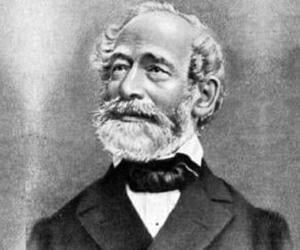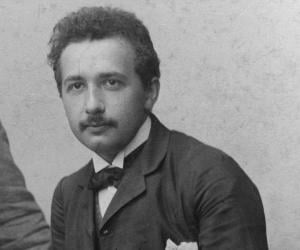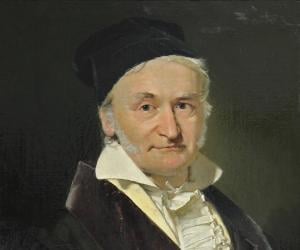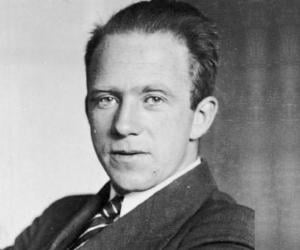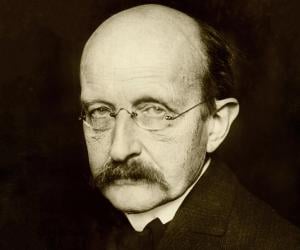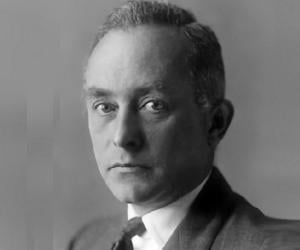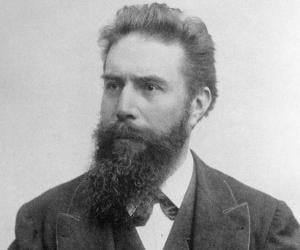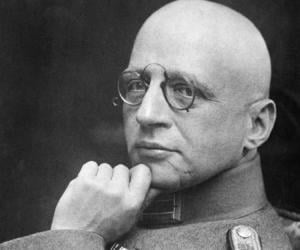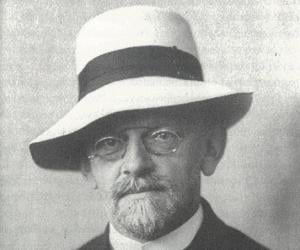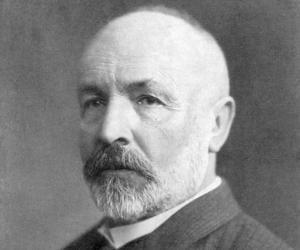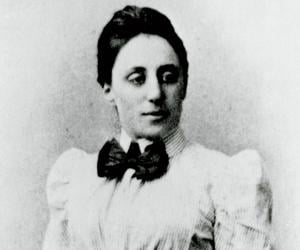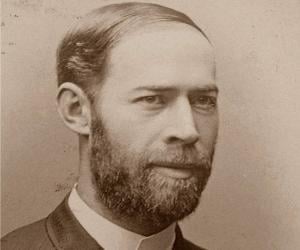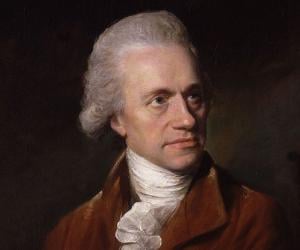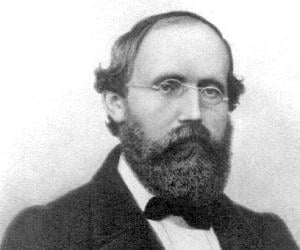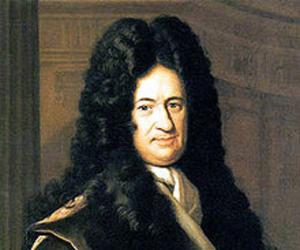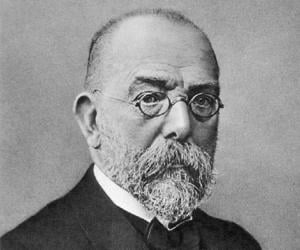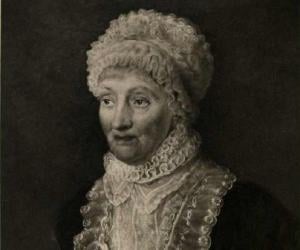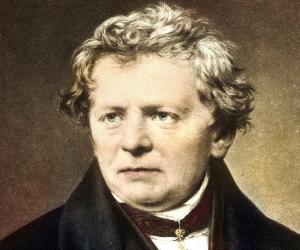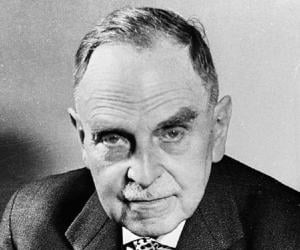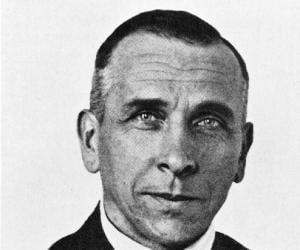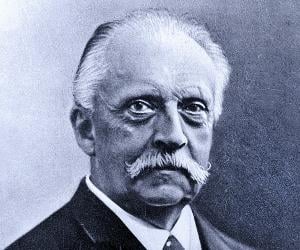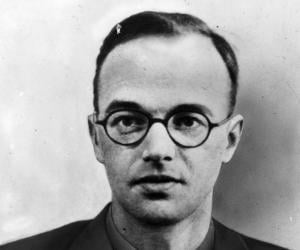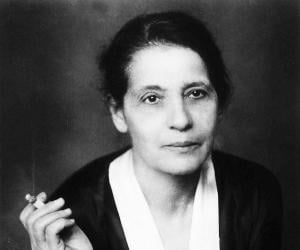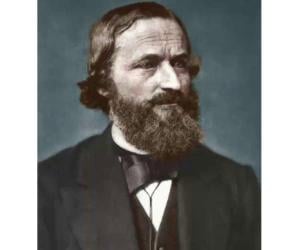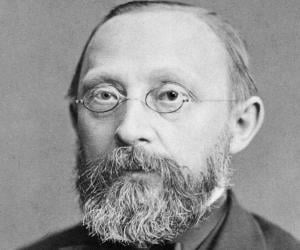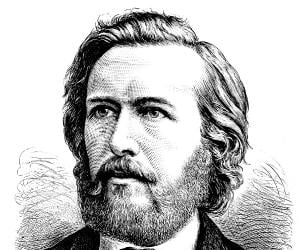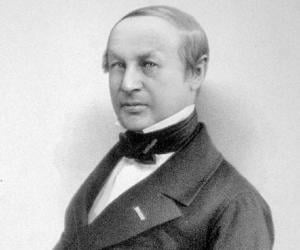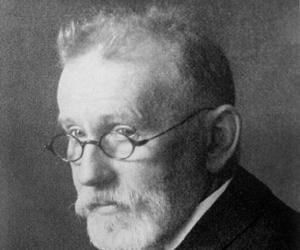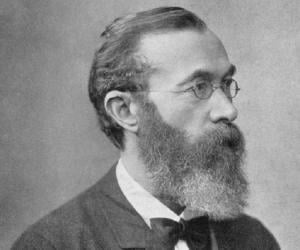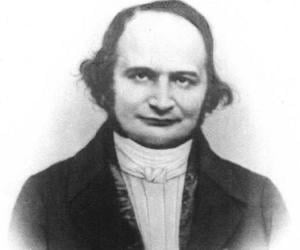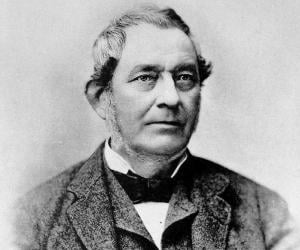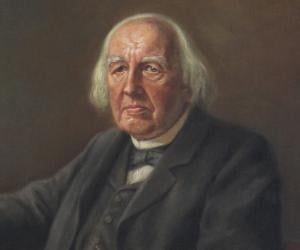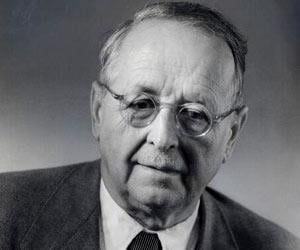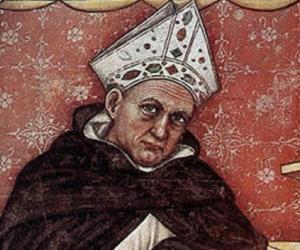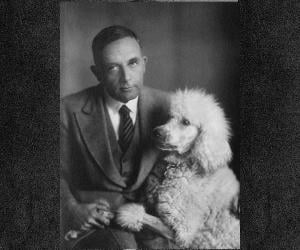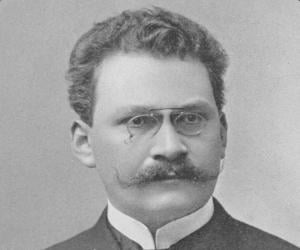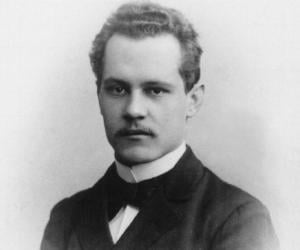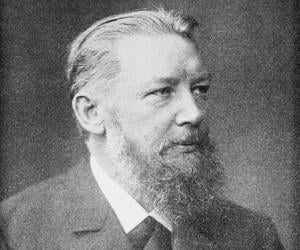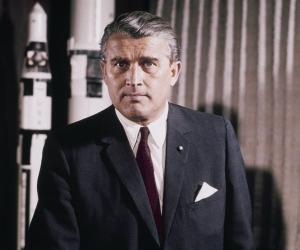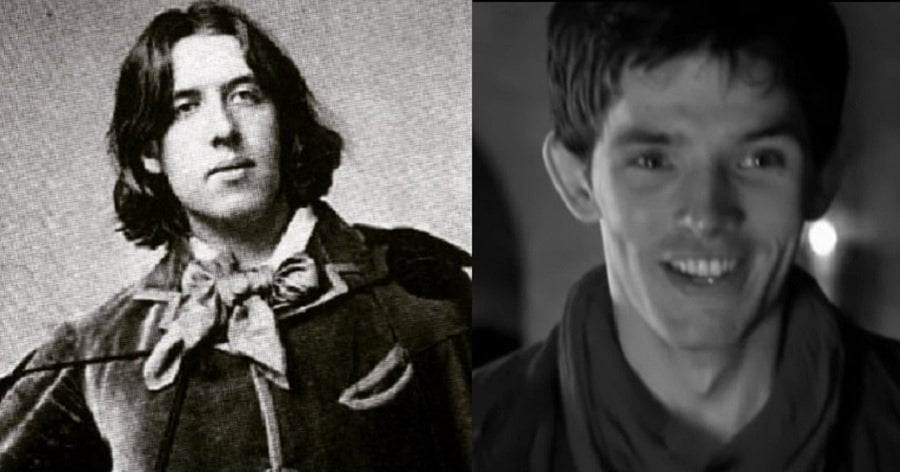German mathematician and physicist Carl Friedrich Gauss is remembered for his work in math and science. Known as the Princeps mathematicorum, he laid down tenets such as the Gauss's Law. He had exhibited his talent since an early age and had completed writing Disquisitiones Arithmeticae by 21.
This 17th-century German mathematician, astronomer, and astrologer is remembered for his pathbreaking work on optics. He invented a developed version of the refracting telescope. He also laid down Kepler's laws of planetary motion and wrote Astronomia Nova, Harmonices Mundi, and Epitome Astronomiae Copernicanae.
German theoretical physicist Max Planck is remembered for originating the quantum theory of physics, which earned him the 1918 Nobel Prize in Physics. He laid down concepts such as the Planck constant and the Planck postulate. The Kaiser Wilhelm Society was later renamed Max Planck Society in his honor.
Wilhelm Rontgen was a German physicist and mechanical engineer. He is best remembered for producing and detecting X-rays for which he was honored with the first Nobel Prize in Physics in 1901. His discovery of X-rays remains one of the greatest achievements in the field of medical science.
Fritz Haber was a German chemist who was honored with the prestigious Nobel Prize in Chemistry for inventing the Haber-Bosch process. The process is used widely to synthesize ammonia from hydrogen gas and nitrogen gas. For his pioneering work in weaponizing poisonous gases like chlorine during World War I, Haber is referred to as the father of chemical warfare.
German mathematician David Hilbert was first drawn to math inspired by his mother, who was a budding math enthusiast. He contributed to a host of concepts, theories, and postulates, such as Hilbert space, Hilbert's program, and Hilbert's problems. He died in oblivion, with a handful of people at his funeral.
Emmy Noether was a German mathematician best remembered for her contributions to abstract algebra. She is credited with discovering Noether's theorem, which is regarded as a fundamental theorem in mathematical physics. One of the most important mathematicians of her generation and the most important woman in mathematics history, Emmy Noether developed theories of algebras, fields, and rings.
Heinrich Hertz was a German physicist best remembered for proving the existence of electromagnetic waves with conclusive evidence. For his contributions, Hertz has been honored around the world by a number of countries, including Japan, Russia, and Germany. In 1930, the International Electrotechnical Commission established hertz (Hz) as the SI unit for frequency.
William Herschel was a German-born British astronomer and composer. He pioneered the use of astronomical spectrophotometry and discovered infrared radiation. Impressed by his work, King George III appointed him the Court Astronomer. Herschel often collaborated with his sister, Caroline Lucretia Herschel, a fellow astronomer. In 1816, he was made a Knight of the Royal Guelphic Order.
Bernhard Riemann was a German mathematician best remembered for his contributions to number theory, analysis, and differential geometry. His paper on the prime-counting function, which was published in 1859, is considered one of the most influential papers in the history of analytic number theory. Riemann is widely regarded as one of the greatest mathematicians ever.
Robert Koch was a German microbiologist and physician. One of the prominent co-founders of modern bacteriology, Koch is credited with creating and improving laboratory techniques and technologies in the field of microbiology. He is also credited with making important discoveries in public health. In 1905, Robert Koch won the Nobel Prize in Physiology or Medicine for his research on tuberculosis.
Caroline Herschel was a German astronomer who is credited with the discovery of many comets, such as 35P/Herschel-Rigollet, which is named in her honor. In 1828, Herschel became the first woman to be honored with a Gold Medal of the Royal Astronomical Society. She was also the first female scientist to receive a salary.
Georg Ohm was a German mathematician and physicist. He is credited with discovering the proportionality between the voltage applied through a conductor and the subsequent electric current, which came to be known as Ohm's law. His work earned him the prestigious Copley Medal in 1841. A prolific writer, Georg Ohm published several papers and pamphlets throughout his career.
In the early 1900s, meteorologist Alfred Wegener did not find too many takers for his theory that all the continents of the world had initially been a single mass named Pangaea and that continental drift had caused them to split apart. Wegener died on his fourth expedition in Greenland.
A descendant of Pennsylvania founder William Penn through his mother, Hermann von Helmholtz studied medicine, pushed by his father, in spite of being interested in the natural sciences. Best known for his law of conservation of energy, he coalesced the fields of medicine, physiology, math, and physics in his studies.
German theoretical physicist Klaus Fuchs worked on many significant theoretical calculations relating to the first nuclear weapons. He was also an atomic spy who provided information about nuclear weapons production to the Soviet Union during World War II. He was convicted and jailed for nine years, following which he resumed his career as a physicist.
Lise Meitner was an Austrian-Swedish physicist best remembered for her contributions that led to the discoveries of nuclear fission and the element protactinium. Nicknamed the German Marie Curie by Albert Einstein, Lise Meitner became the second woman in the world to receive a doctorate in physics in 1905. In 1997, chemical element 109 meitnerium was named in her honor.
Gustav Kirchhoff was a German physicist who is credited with coining the term black-body radiation. He is best remembered for his contribution to the basic understanding of spectroscopy, electrical circuits, and the emanation of black-body radiation. In 1862, he received the prestigious Rumford Medal. The Bunsen-Kirchhoff Award is named after Gustav Kirchhoff and German chemist Robert Bunsen.
Rudolf Virchow was a German physician, pathologist, anthropologist, biologist, prehistorian, editor, writer, and politician. Nicknamed the Pope of medicine by his colleagues, Virchow is credited with founding the field of social medicine. He is also widely regarded as the father of modern pathology. Rudolf Virchow was the first person to name diseases, such as thrombosis, leukemia, ochronosis, embolism, and chordoma.
Ernst Haeckel had initially practiced medicine before he gained an interest in Charles Darwin’s theory and began exploring zoology and related fields. He not only coined terms such as ecology, but also named numerous species and created a genealogical tree. He drew numerous figures of animals and sea creatures, too.
Theodor Schwann was a German physiologist and physician best remembered for his important contributions to biology. He is credited with discovering the Schwann cells, which is named after him. He is also credited with discovering pepsin and the organic nature of yeast. Theodor Schwann also invented the term metabolism.
German scientist Paul Ehrlich is remembered for his contribution to immunology, which also won him a Nobel Prize. Known as the pioneer of chemotherapy, he also discovered the first-known treatment of syphilis. Born into a business family, he was introduced to the method of studying cells by his pathologist uncle.
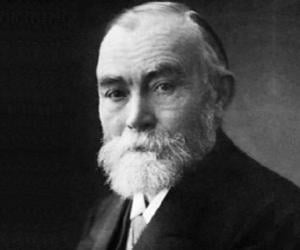
Wilhelm Wundt was a German physiologist, professor, and philosopher. He is often counted among the founders of modern psychology and is widely considered the father of experimental psychology. He is also credited with founding the first laboratory for psychological research, which he founded at the University of Leipzig in 1879.
Carl Gustav Jacob Jacobi was a German mathematician best remembered for his contributions to differential equations, dynamics, number theory, determinants, and elliptic functions. He is the first Jewish mathematician to work as a professor at a German university. Jacobi has a crater on the Moon named after him in recognition of his contribution to science.
Chemist Robert Bunsen paved the path for spectrum analysis with his discovery that every element emits a light of a particular wavelength. He also co-developed and lent his name to the Bunsen burner. He almost died of arsenic poisoning and lost sight in his right eye in a laboratory explosion.
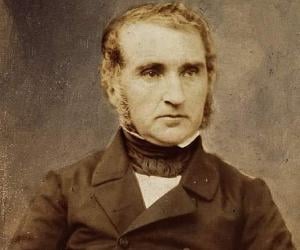
German chemist Justus von Liebig is best known for his research on organic compounds and his contribution to biochemistry and agriculture. The Copley Medal-winning scientist initially studied pharmacy but later switched to chemistry. As a professor, he stressed on laboratory-based teaching of chemistry and separating it from pharmacy, opposing traditional methods.
Karl Weierstrass was a German mathematician best remembered for his significant contributions to mathematics. Often referred to as the father of modern analysis, Weierstrass proved the Bolzano-Weierstrass theorem and the intermediate value theorem. He also authorized the definition of continuous function. The asteroid 14100 Weierstrass and the lunar crater Weierstrass are named after him.
Hermann Klaus Hugo Wey is remembered for his contribution to both physics and math. He was one of the first scientists to think of merging the concepts of electromagnetism and relativity. He moved from the University of Göttingen to Princeton in the wake of the rise of the Nazi reign.
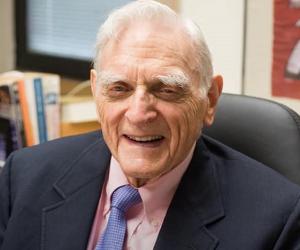
John B. Goodenough is an American solid-state physicist and materials scientist. He is credited with developing the lithium-ion battery. In 2019, he became the oldest person to receive a Nobel Prize when he was honored with the prestigious award for his work on lithium-ion batteries. He is also a recipient of the Copley Medal and the National Medal of Science.
Edmund Husserl was a German philosopher of Moravian origin. He established the school of phenomenology. He studied mathematics, physics, and astronomy at the University of Leipzig and worked as an assistant to mathematician Karl Weierstrass. He later became a professor of philosophy and taught for several years. He is considered a major figure in 20th-century philosophy.
Albertus Magnus was a friar, bishop, and philosopher. Regarded by some as the greatest German theologian and philosopher of the Middle Ages, Albertus' writings have inspired the iconography of the archivolts and tympanum of the 13th-century portal of Strasbourg Cathedral. Remembered for his contribution to academics, several education institutions have been named after Albertus Magnus.

August Kekulé was a German organic chemist. Regarded as one of the most important chemists in Europe, Kekulé is credited with founding the theory of chemical structure, including the Kekulé structure of benzene. Kekulé is also credited with teaching future Nobel Prize winners, Jacobus Henricus van 't Hoff Jr., Hermann Emil Louis Fischer, and Johann Friedrich Wilhelm Adolf von Baeyer.
Otto Heinrich Warburg was a German medical doctor and physiologist. In 1931, his discovery of the nature of the respiratory enzyme earned him the prestigious Nobel Prize in Physiology or Medicine. He also played an important role during World War I where he served as an officer in the cavalry regiment; he was honored with the Iron Cross for bravery.
Hermann Minkowski was a mathematician who served as a professor at the University of Göttingen, the University of Königsberg, and the University of Zurich. He is credited with creating and developing the geometry of numbers. He is also credited with using geometrical methods to resolve problems in the theory of relativity, mathematical physics, and number theory.

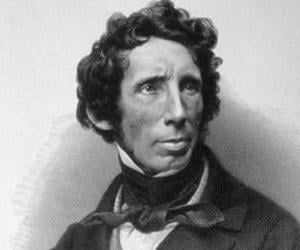
Friedrich Wöhler was a German chemist best remembered for his contribution to the field of inorganic chemistry. He was the first person to isolate the chemical elements yttrium and beryllium in pure metallic form. Friedrich Wöhler was also the first person to prepare many inorganic compounds such as silicon nitride and silane.
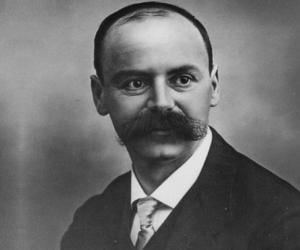
Karl Schwarzschild was a German astronomer and physicist. He is remembered for his contributions to the general theory of relativity; Schwarzschild came up with the first exact solution to the Albert Einstein field equations. He also contributed immensely to the theory of black holes.
German physicist Arnold Sommerfeld initially taught math and theoretical physics and later came to be known for his groundbreaking work on atomic and quantum physics and wave mechanics. He also laid down the magnetic quantum number. Many of the doctoral and post-doctoral students he supervised later won the Nobel Prize.
Wilhelm Ostwald was a Baltic German philosopher and chemist who is credited with co-founding the field of physical chemistry. A polymath, Ostwald made significant contributions to philosophy, art, and politics, especially after his retirement from academic life. His contributions to the fields of reaction velocities, chemical equilibria, and catalysis earned him the 1909 Nobel Prize in Chemistry.

A pioneer of physical anthropology, Johann Friedrich Blumenbach laid down one of the first racial classification systems for humans after studying human skulls, dividing mankind into five racial groups. Born into a family of academics, he was a prodigy. He was against scientific racism, though his theory promoted the degenerative hypothesis.
German-born American aerospace engineer and space architect, Wernher Von Braun, worked in Nazi Germany's rocket development program as a young man. After World War II, he moved to the United States where he became a pioneer of rocket and space technology in the nation. In his later career, he became director of the newly formed Marshall Space Flight Center.
